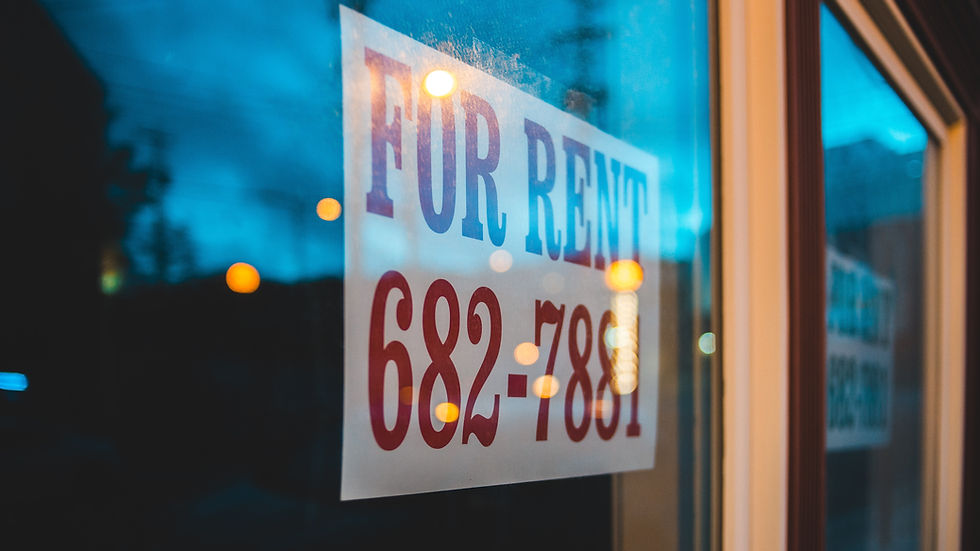Understanding Landlord Insurance in Connecticut: A Guide for Property Owners
- Mark Vincent Ellema

- Jun 23
- 4 min read
Updated: Jul 17

Owning rental property in Connecticut offers fantastic opportunities, but it also comes with significant risks. Whether you're leasing out a single-family home in West Hartford or managing a multi-unit property in Bridgeport, protecting your investment is essential. That’s where landlord insurance in Connecticut comes in handy.
In this comprehensive guide, we'll break down what landlord insurance covers, how it differs from homeowners insurance, and how to get a landlord insurance quote that suits your property and budget.
What Is Landlord Insurance?
Landlord insurance, sometimes referred to as rental property insurance, is a specialized policy designed to protect property owners who rent out residential homes, condos, or apartments. Unlike traditional homeowners insurance, landlord insurance addresses the unique risks associated with tenants, rental income, and property management.
What Does a Connecticut Landlord Insurance Policy Cover?
A standard Connecticut landlord insurance policy typically includes various coverages.
1. Dwelling Coverage
This coverage protects the structure of your rental property from damage caused by fire, storms, vandalism, and other covered perils. It's crucial to ensure your property is safeguarded against unexpected incidents.
2. Liability Protection
Liability protection covers legal fees, medical bills, or settlements if a tenant or guest is injured on your property and holds you responsible. This coverage is vital for landlords, as lawsuits can arise from seemingly minor incidents.
3. Loss of Rental Income
In case your property becomes uninhabitable due to a covered event (such as a fire or significant storm damage), you may receive reimbursement for lost rent. This can help you maintain your financial stability during tough times.
4. Optional Add-ons
Landlords can opt for additional coverages to better protect their investments:
Flood Insurance: Especially useful in coastal or flood-prone areas.
Equipment Breakdown Coverage: Covers malfunctioning appliances or systems.
Umbrella Liability Protection: Provides extra liability coverage beyond standard limits.
Landlord Insurance vs. Homeowners Insurance
Many property owners mistakenly believe that a regular homeowners insurance policy is adequate for rental properties. This misconception can be costly.
Homeowners Insurance: Designed for owner-occupied homes only.
Landlord Insurance: Tailored specifically for properties being rented out to others.
If you file a claim on a rental property using only homeowners insurance, your claim may be denied.
For more information, please visit our blog post about Landlord Insurance vs. Homeowners Insurance.
How Much Does Landlord Insurance Cost in CT?
The cost of rental property insurance in Connecticut varies based on several factors:
Property location and age
Building materials
Type of rental (short-term vs. long-term)
Claim history
Coverage limits and deductibles
On average, expect to pay 15–25% more than a standard homeowners policy. For example, if your home insurance costs $1,000 annually, landlord insurance may cost between $1,150 and $1,250 per year.
To get the best landlord insurance in Connecticut, compare multiple quotes to find coverage that balances comprehensive protection with affordability.
How to Get a Landlord Insurance Quote in Connecticut
Obtaining a landlord insurance quote has never been easier. Follow these steps:
Inventory Your Property: Gather information like square footage, building features, and any safety upgrades.
Decide on Coverage: Choose your dwelling limit, liability coverage, and optional add-ons.
Work with a Broker: An independent broker, like us at Insure Connecticut LLC, can assist you in comparing policies from top-rated insurers.
Get Multiple Quotes: Don’t settle for the first offer. Shop around or allow a broker to do the searching for you.
Why You Shouldn't Skip Landlord Insurance
Many landlords may consider forgoing landlord insurance, but this can expose you to significant risks:
Uncovered Repair Costs: Damage to your property may result in costly repairs.
Out-of-Pocket Liability Claims: If someone is injured on your property, you could be liable for medical bills.
Lost Income: Rental interruptions can lead to significant financial setbacks.
Even a single incident—like a kitchen fire or a lawsuit—can cost tens of thousands of dollars. Protect your investment and your peace of mind with the right policy.
Recommended External Resource
For unbiased tips and landlord best practices, check out the U.S. Department of Housing and Urban Development (HUD) Rental Guide. It’s a reliable source for legal responsibilities, safety guidelines, and more.
Frequently Asked Questions
What’s the difference between landlord and rental property insurance?
They're often used interchangeably. Both terms refer to coverage for non-owner-occupied residential properties, protecting against damage, liability, and income loss.
Is landlord insurance required in Connecticut?
While it's not legally required, most mortgage lenders will require it for rental properties. Even if not mandatory, it's highly recommended.
Does landlord insurance cover tenant belongings?
No. Tenants must obtain their own renters' insurance to cover personal property. You can recommend it or include it in your lease agreement.
Can I bundle landlord insurance with other policies?
Yes! Bundling with auto, umbrella, or other property policies can often secure you a discount. Be sure to ask your insurance broker about this.
How do I reduce landlord insurance costs?
To lower costs, consider increasing your deductible, installing safety upgrades (like smoke detectors and deadbolts), and working with an independent agent to compare policies effectively.
Get a Free Landlord Insurance Quote Today
At Insure Connecticut LLC, we assist landlords across the state in finding customized, cost-effective coverage. Whether you own a single-family rental in New Haven or a duplex in Hartford, we’re here to protect your property—and your profits.
Call us at (860) 970-0977 or request your free quote online today.
.png)



1 Comment